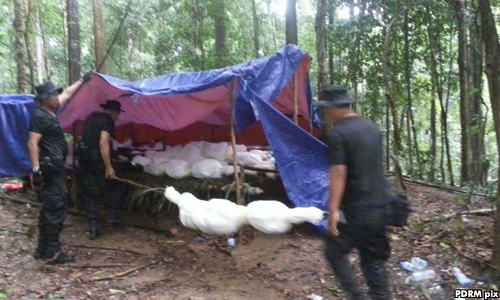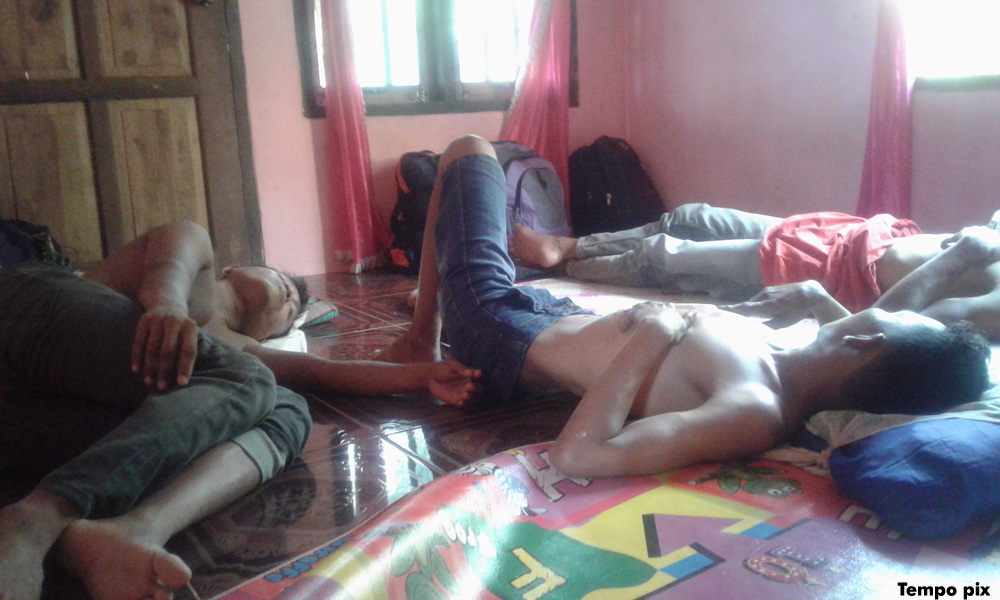MP SPEAKS | I read with deep anger and frustration the three-part special reports by Malaysiakini journalist Alyaa Alhadjri, who worked with her counterparts from the Indonesian Tempo magazine on human trade and trafficking in Malaysia.
As much as I am angry, I am not at all surprised. From the first publication of the US Department of State’s Trafficking in Persons (TIP) Report in 2001, Malaysia has been identified as “a destination, and, to a much lesser extent, source and transit country for men, women and children subjected to forced labour and women and a small number of children subjected to sex trafficking”.
We are currently on the Tier 2 Watch List in the 2016 TIP Report, just one notch above the lowest Tier 3. This is already our second consecutive year in that position. I will not be surprised if Malaysia falls to Tier 3 in this year’s TIP Report.
Blood is on our hands, my dear fellow Malaysians.
If we continue to do nothing, we are an accomplice to human trafficking. This not some slave market you read in some Islamic State country faraway, nor some rural village in some Third World country somewhere. It is right here, in our home ground, in our neighbourhood, in our taman, on our streets.
Insider syndicate still roaming free
From the Malaysiakini special reports, it is quite clear that illegal immigration and human trafficking are occurring between Indonesia and Malaysia because of collusion among government officials from both countries.
The most apparent crime of this collusion, especially from the special report, is persons with forged travel documents were allowed to enter into Malaysia.
This is despite our government boasting expensive, high-tech biometrics equipment at entry points. The only answer to this is: insiders colluded with human traffickers to allow and even facilitate illegal entry.
Various reports, ranging from the 2009 US Senate Foreign Relations Committee to our own from the Royal Malaysian Police (PDRM) to various civil society groups have warned of the involvement of “insiders” in human trafficking activities in Malaysia. These insiders include border guards, police, immigration officers as well as members of the Rela voluntary corps.
Your special reports corroborated the modus operandi of human traffickers which involved such sinister, insider syndicates.
The problem is, despite numerous high profile exposures, the government is still unable to crush this insider syndicate.
Replying to my question in Parliament on March 20, the home minister said all the 12 policemen detained under anti-trafficking laws in relation to the discovery of the Wang Kelian migrant death camp at the Malaysia-Thai border were released due to lack of strong evidence against them.
 While I do not want to jump the gun on these officials, it is clear that such death camp, with almost 200 graves discovered and known to locals in the surrounding areas, cannot exist outside the knowledge of those in authorities. NGOs, such as Tenaganita, have long reported the existence of such traffickers’ camps in our country.
While I do not want to jump the gun on these officials, it is clear that such death camp, with almost 200 graves discovered and known to locals in the surrounding areas, cannot exist outside the knowledge of those in authorities. NGOs, such as Tenaganita, have long reported the existence of such traffickers’ camps in our country.
In the end only three foreigners were sentenced in relation to the Wang Kelian tragedy!
Clearly, insiders in cohort are still roaming free and are still actively committing their outrageous crime.
Overall, from 2010 to 2016, there were 1,091 cases of human trafficking reported, but less than 10 percent of these cases - about 103 cases - were convicted in the Malaysian courts.
Saying sorry easier than asking for permission
Last week in Parliament, while engaging in a debate with Deputy Home Minister Nur Jazlan Mohamed, I said that the government’s regular legalisation exercise for undocumented migrants cannot be implemented in isolation with other immigration reforms.
For example, due to our porous borders, we now have two to three million undocumented migrants. With the regular legalisation exercise, traffickers seem to be enjoying a situation where “it is easier to say sorry than to ask for permission”; bring the migrants into Malaysia illegally first, then register later via the legalisation exercise.
Once again, the motivation for the ‘rehiring exercise’ seems to be the lucrative profit raked in by middlemen super-agents, such as private companies closely linked to Umno, that were appointed via direct negotiations to monopolise the whole process, and not driven by national interest.
Needs, policy and strategy don't match
Our porous borders aside, it is obvious from the constant influx of illegal immigration that there is a real demand for migrant workers in Malaysia.
But noting that we already have about two million documented migrant workers, and another two million undocumented migrants, who mostly are already doing some kind of work; this demand is very intriguing.
 So, what is really happening here?
So, what is really happening here?
The current situation is totally illogical and inefficient, where the migrant workers intake is managed by two ministries - the Human Resources Ministry and the Home Ministry, with the latter playing the leading gatekeeper’s role.
The Human Resources Ministry should take charge to do a thorough survey of industrial needs and map out a strategy to deal with those needs in a National Human Resource Routemap.
The Home Ministry, on the other hand, should be removed from its current role of deciding on the intake of migrant workers. This ministry should focus solely on border control and immigration law enforcement. It should not busy itself with the appointment of super-agents to import migrant workers.
In fact, the high cost, whether financial or bureaucratic cost, of hiring migrant workers through the official channels due to our disorganised, haphazard, random and senseless migrant workers policy, encourages illegal immigration.
Part of the problem is the private profit-driven policy of appointing companies closely-linked to the ruling party as middlemen super-agents to handle the immigration processes.
Royal Commission on Immigration needed
A Royal Commission on Immigration inevitable if the government is serious about solving our immigration crisis.
Today, our immigration crisis is no longer just a matter of simple bribery. It infringes on national security. People come in and out illegally; today a refugee or an economic migrant, tomorrow maybe a terrorist. We have seen recently how foreign covert operatives were allowed entry and even committed murder in Malaysia.
Migrants, on the other hand, were subjected to atrocious oppression, the Malaysiakini special reports also told the tragic tale of Yufrinda Selan, who came to Malaysia alive, as a teen, and returned to Indonesia dead, a corpse, barely a year later.
Yet, the federal government has continually and stubbornly refused to commit to a thorough reform of immigration, including the setting up of a Royal Commission on Immigration Reform in the model of the Dzaiddin Abdullah Royal Commission on Police Reform. The problems are too entrenched and too widespread. Only a thorough investigation at the highest level possible can deal with this crisis.
STEVEN SIM CHEE KEONG is the MP for Bukit Mertajam and spokesperson for the DAP Parliamentary Committee on Human Resources.
The views expressed here are those of the author/contributor and do not necessarily represent the views of Malaysiakini.

